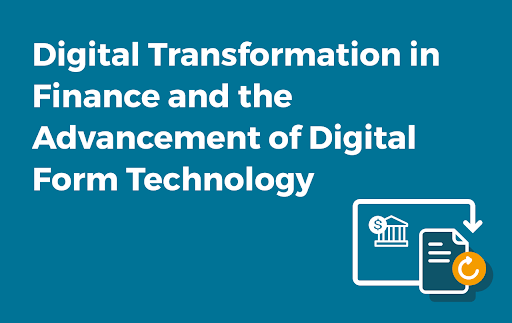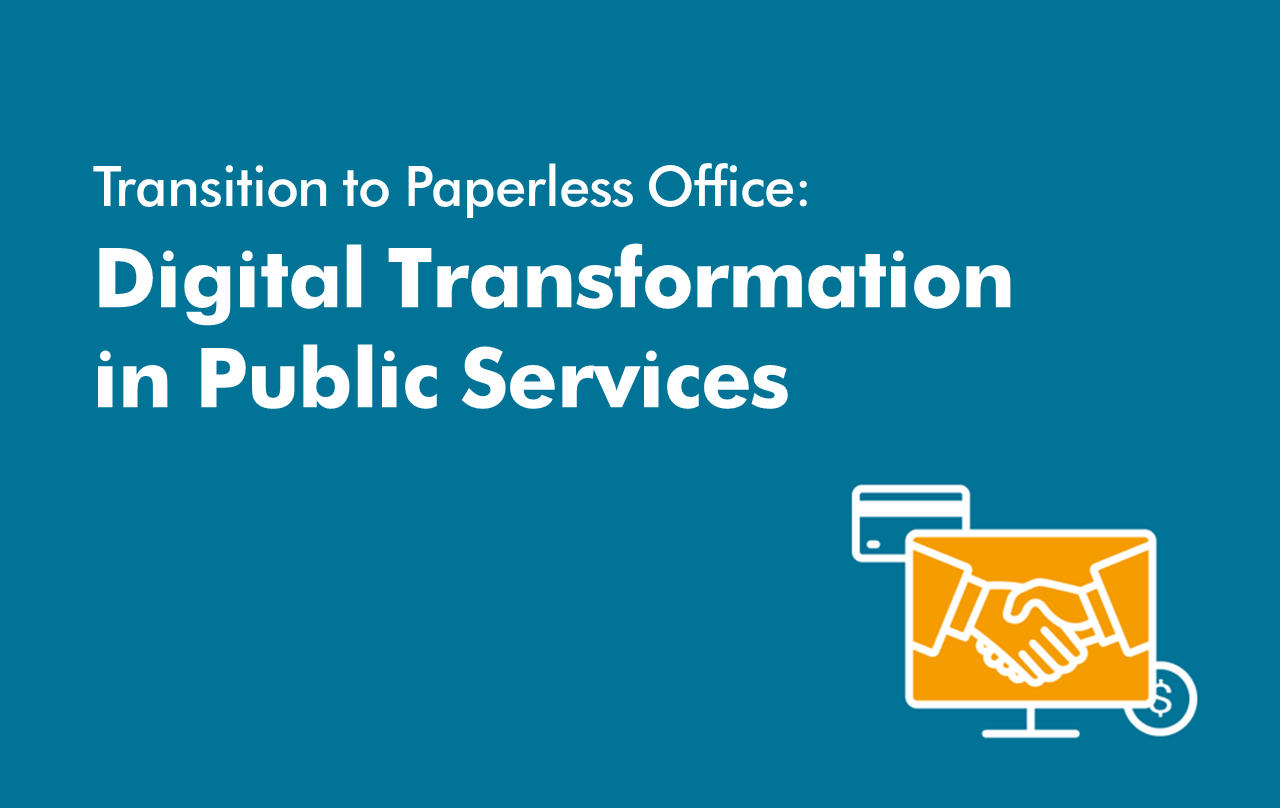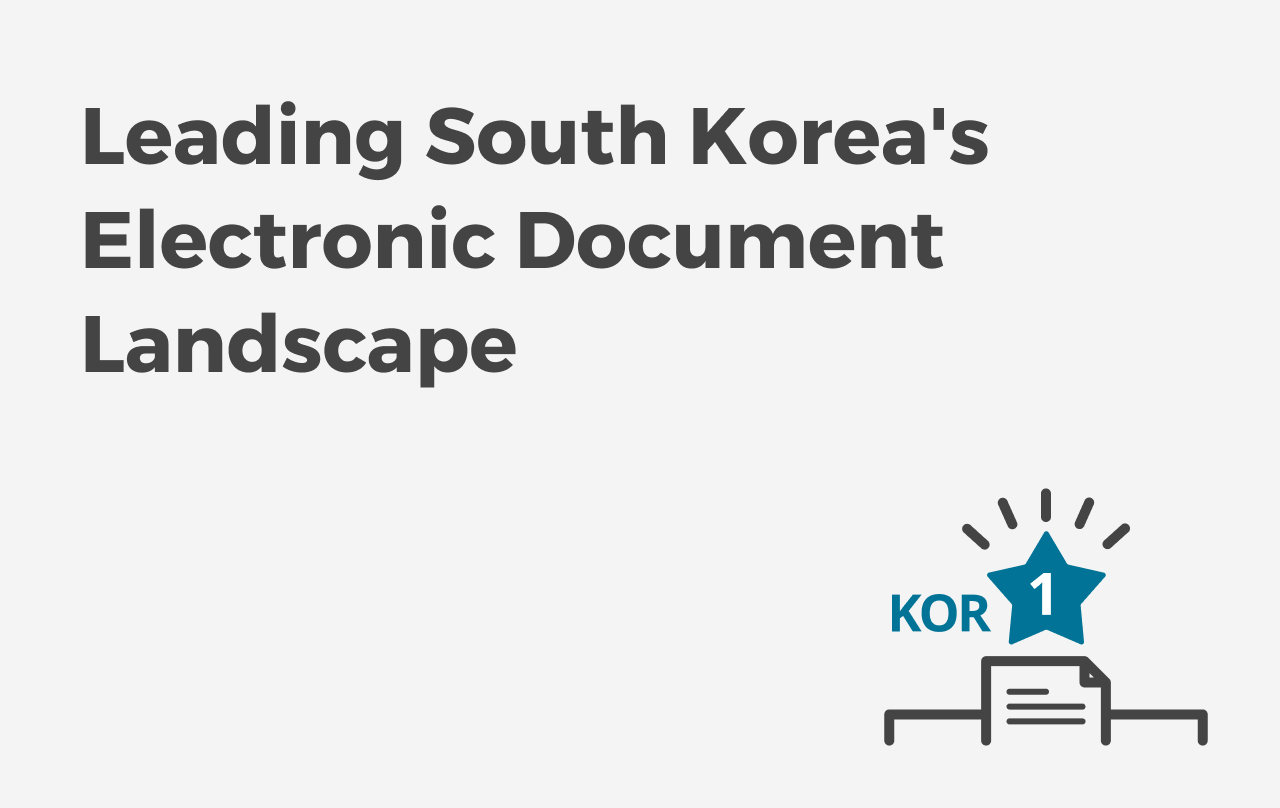Digital Transformation in Finance and the Advancement of Digital Form Technology
In the wake of the COVID-19 pandemic, the financial sector has undergone a profound digital transformation, underscored by the growing importance of contactless channels. This transformation has ushered in a new era of non-face-to-face interactions, driven by the pursuit of superior customer experiences and an increased competitive edge through innovative technology applications.

The Crucial Role of Digital Forms
At the heart of this financial revolution lies the essential adoption of paperless processes across all channels, with digital form technology as a linchpin. Notably, South Korea’s digital form technology has emerged as a global leader owing to its rapid advancement.
This shift toward paperless operations has dramatically curtailed paper consumption within banks. By incorporating digital forms, financial institutions have remarkably reduced customer document completion times, surpassing 50%.
Yet, digital form technology isn’t solely about converting paper into a digital format. It offers dynamic capabilities, allowing forms to adapt to specific conditions, thereby consolidating numerous forms into a unified format. These streamlined form management functions significantly heighten productivity. Moreover, it has revolutionized in-person banking interactions, allowing real-time synchronization between sales representatives and customers. The technology offers features like pen guidance, bidirectional simultaneous input, input field authorization settings, and input validation, ensuring operational efficiency and a user-friendly experience for all parties. This efficiency and adaptability have not only enhanced customer experiences but also piqued the interest of the global financial community.
The world is taking notice of Korean digital form technology as it gains recognition and acclaim. Recently, Vietnamese banks have embraced paperless counter systems inspired by the Korean model, driven by the desire to replicate the efficiency and enhanced customer experiences it offers. With successful implementations in Vietnam, the expectation extends to further expansion across Asia and beyond, signifying the increasing global influence of Korean digital form technology as a benchmark for the financial industry’s digital transformation.
Mobile Advancements and Contactless Revolution
Digital form technology rapidly advances on mobile devices, harnessing device-specific features and mobility. For instance, insurance companies in Korea have achieved an electronic subscription rate exceeding 90%, virtually eliminating the need for paper documents.
Digital forms have become the bedrock of contactless communication, enabling modern mobile banking services to seamlessly incorporate video consultations and contract processing, effectively emulating the experience of traditional in-person interactions. Additionally, STM (Smart Teller Machine) and Digital Desk are now equipped to facilitate contactless video consultations, enhancing the efficiency of customer transactions.
A prime illustration of digital form technology’s potential is the “Visible TM Service” offered by an insurance company. It transcends the limitations of traditional voice-only contract procedures, enabling real-time collaboration on contracts through digital forms accessible via a mobile web platform. This innovation streamlines processes improves accessibility, reduces errors, and enhances the experience for all involved parties.
User-Centric Development and Korean Leadership
While digital form technology has garnered praise, concerns persist about its accessibility to digitally disadvantaged groups, notably older individuals. A steadfast commitment to developing user-centric features is underway, aimed at addressing these concerns effectively.
In South Korea, financial institutions proactively embrace digital transformation to meet the ever-evolving market demands. This proactive stance has propelled domestic digital form technology onto the global stage, and we anticipate its continued growth and influence worldwide.




